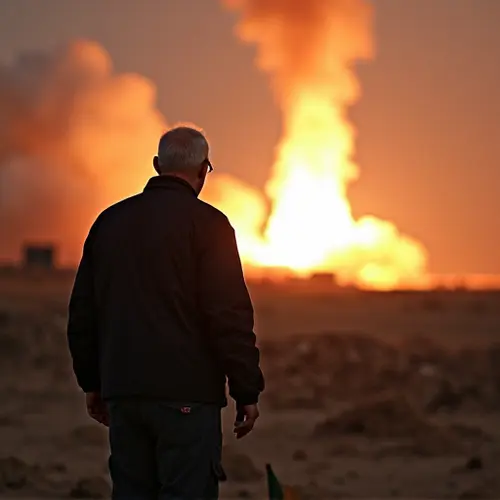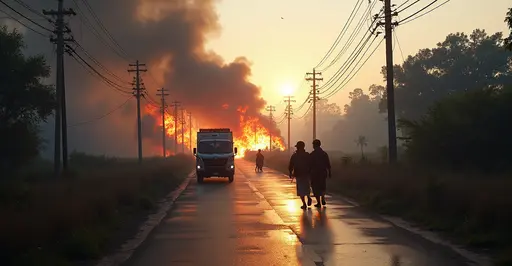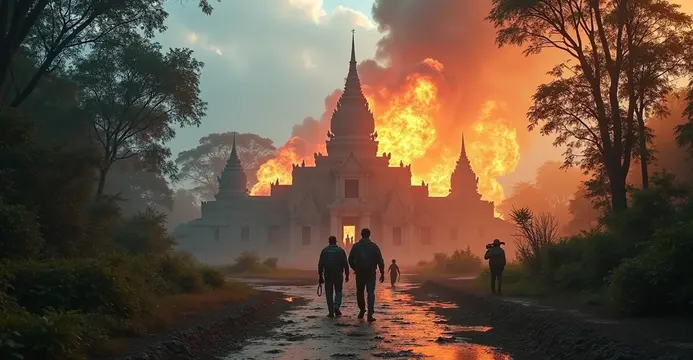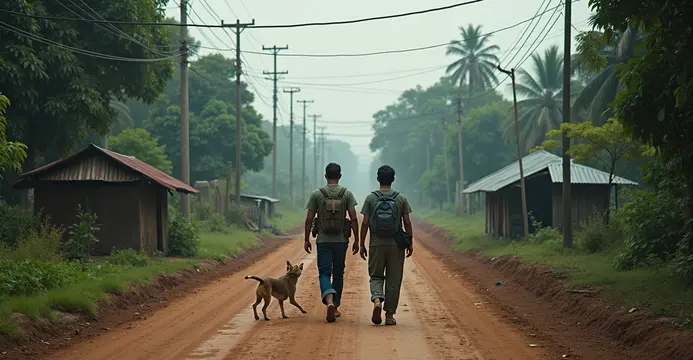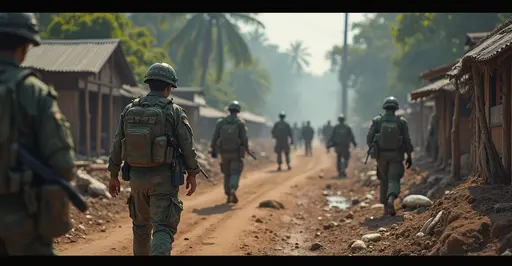Cambodia and Thailand agreed to a ceasefire mediated by Malaysia, ending 5 days of border clashes. The deal includes reopening communication channels and takes effect immediately. The conflict displaced 300,000 people and killed 35.
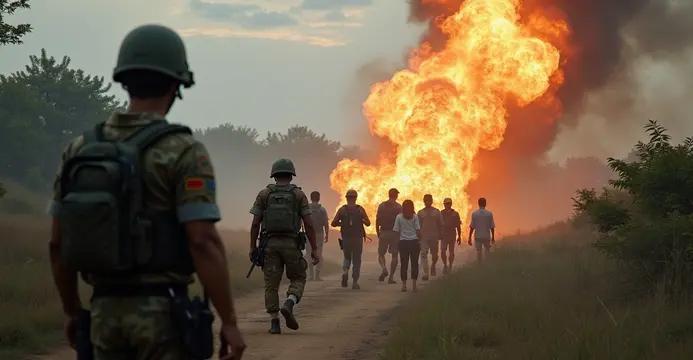
Border Conflict Resolution
Cambodia and Thailand have reached a ceasefire agreement following intense negotiations mediated by Malaysia. Malaysian Prime Minister Anwar Ibrahim announced the breakthrough, describing it as a crucial 'first step' toward de-escalation and peace restoration.
Terms of Agreement
The ceasefire takes effect at midnight local time (19:00 GMT). Both nations have also agreed to reopen direct communication channels between their governments. This resolution comes after five days of intense border clashes that claimed at least 35 lives and displaced approximately 300,000 civilians.
Historical Context
The Cambodia-Thailand border dispute spans over a century, centered around an 800-kilometer contested frontier. Both nations claim ancient Khmer temples located in the disputed zone, particularly Preah Vihear - a UNESCO World Heritage site. The conflict stems from unresolved territorial demarcations dating back to 1904 Franco-Siamese treaties.
International Pressure
The breakthrough followed mounting international pressure, including from U.S. President Trump who threatened trade consequences if hostilities continued. China also played a behind-the-scenes diplomatic role.
Leadership Reactions
Thai Acting Prime Minister Phumtham Wechayachai expressed confidence both parties would honor the agreement 'in good faith.' Cambodian Premier Hun Manet acknowledged international support, stating the ceasefire enables displaced civilians to 'return to normal life.' The leaders sealed the agreement with a symbolic handshake in Kuala Lumpur.

 Nederlands
Nederlands English
English Français
Français Deutsch
Deutsch Español
Español Português
Português


